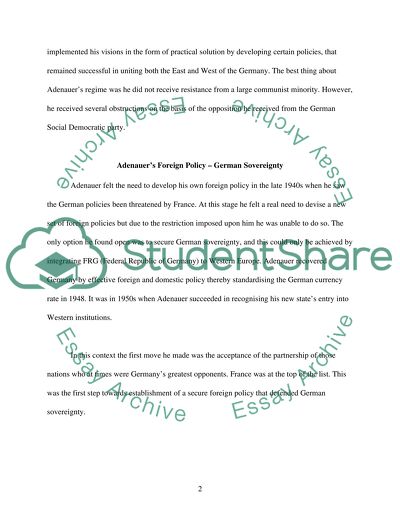Cite this document
(“Adenauers Foreign Policy Essay Example | Topics and Well Written Essays - 2000 words”, n.d.)
Adenauers Foreign Policy Essay Example | Topics and Well Written Essays - 2000 words. Retrieved from https://studentshare.org/miscellaneous/1501857-adenauers-foreign-policy
Adenauers Foreign Policy Essay Example | Topics and Well Written Essays - 2000 words. Retrieved from https://studentshare.org/miscellaneous/1501857-adenauers-foreign-policy
(Adenauers Foreign Policy Essay Example | Topics and Well Written Essays - 2000 Words)
Adenauers Foreign Policy Essay Example | Topics and Well Written Essays - 2000 Words. https://studentshare.org/miscellaneous/1501857-adenauers-foreign-policy.
Adenauers Foreign Policy Essay Example | Topics and Well Written Essays - 2000 Words. https://studentshare.org/miscellaneous/1501857-adenauers-foreign-policy.
“Adenauers Foreign Policy Essay Example | Topics and Well Written Essays - 2000 Words”, n.d. https://studentshare.org/miscellaneous/1501857-adenauers-foreign-policy.


